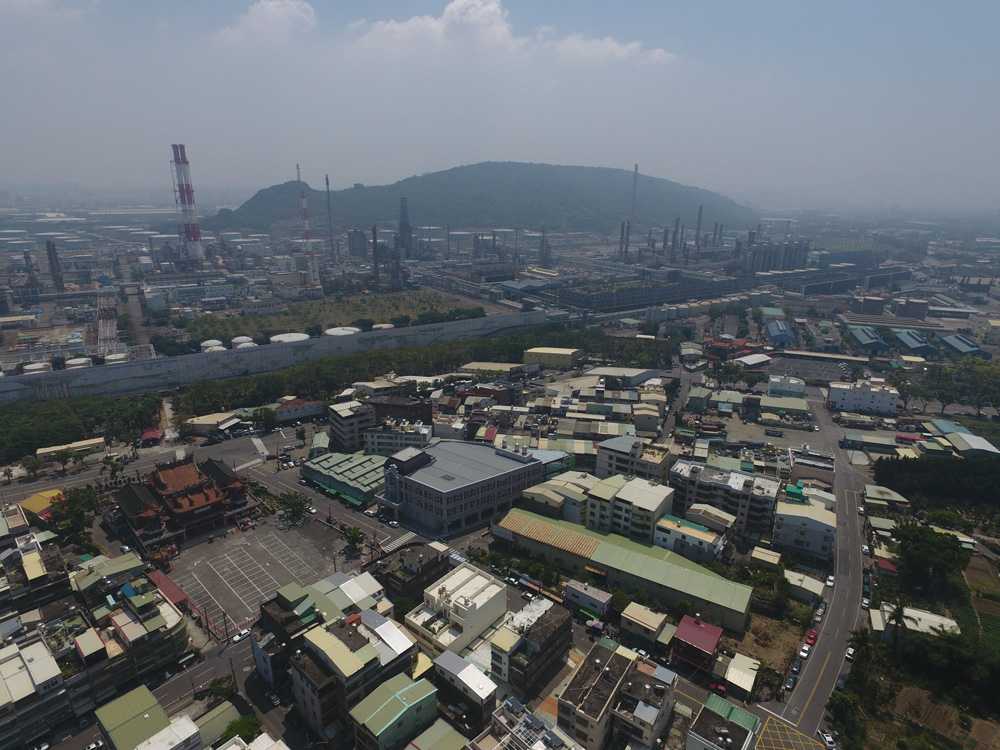Is TSMC an effective environmental steward for Taiwan?
You are here
You are here

The Kaohsiung Third Science Park is planned to be developed on the former site of CPC Corporation's Kaohsiung Refinery, with TSMC set to establish a facility there. (Image/ CET)
1.TSMC's Environmental Compliance Record
Based on the inquiries in the Pollutant Release and Transfer Register system of Taiwan's Ministry of Environment, we found that most of the pollution caused by TSMC occurred between 2010 and 2016, including air pollution, water pollution and high-tech industry waste cleanup issues, occurring once a year. However, the scale of pollution is not really large.
Since Taiwan inherited a highly polluting, high-carbon-emitting petrochemical industry built by Japan (also supported by US after World War II), it may be said that the semiconductor industry in Taiwan (or what we call the "science park",which has actively developed in the past 20 years) has become relatively “less polluted" and more welcomed in Taiwan.
On the other hand, compared to other semiconductor companies, TSMC is indeed less criticized for pollution control and waste, due to their relatively high environmental requirements from the international supply chain.
2. Some brief background introduction
In the past two years, TSMC announced plans to build more than 10 factories in northern, central and southern Taiwan, some of which are chip packaging and testing factories. Most of them are currently advanced manufacturing for industrial needs, such as the data center for AI.
In Nanzi (楠梓), Kaohsiung (高雄), in order to speed up the remediation of brownfield sites heavily polluted by oil refineries, the city government sailed close to the wind and conducted a "perfunctory" environmental impact assessment (a necessary legal review for the development of our large-scale industries), hoping that TSMC can be the leader company to gather the whole supply chain, and transform the heavy industry into high-tech industries in Kaohsiung.
Therefore, in the past three years, the Kaohsiung government has approved TSMC to set up three factories, and TSMC is expected to expand to five factories in the future.
According to our research and calculation, the current electricity consumption of the three factories of TSMC has reached 5.5 billion kilowatt-hours, equivalent to 18% of the total electricity consumption of Kaohsiung City and 93% of residential electricity consumption of Kaohsiung City in 2023.
If TSMC expanded to five factories in Kaohsiung as they announced, it may reach 30% of the electricity consumption of Kaohsiung City, and unfortunately most of the electricity supply (about 90%) of Kaohsiung is still generated by fossil fuels.
3. Is TSMC a good environment steward?
First, TSMC should be more responsible for their energy demand, such as building their own renewable energy plants or cooperating with the communities where their factories are located, instead of simply buying renewable energy.
Since TSMC and its supply chain are making staggering economic profits and the role of the semiconductor industry in national security (the US-China trade war, East Asia and Taiwan Strait relations, etc.), they are even referred to as the "Sacred Mountain that protects the country" (a metaphor derived from Taiwan's high mountains which block typhoons) in Taiwan. We can say that the expansion of TSMC in Taiwan is unimpeded.
Therefore, rather than asking whether TSMC is a good environment steward, the main issue for us is to ensure the Taiwanese government takes sufficient responsibility for its industrial policies.
In particular, despite TSMC's commitment to RE100 by 2040, we still can’t see a specific renewable energy development strategy from either the government or TSMC. Instead, TSMC throws the energy issues back to government agencies.
Second, Taiwan is a small island with limited territory, a dense population, and frequent earthquakes, which makes it risky to keep developing nuclear energy. However, those well-developed renewable energies such as solar and wind power require vast amounts of land.
Therefore, it is unlikely to generate enough renewable energy to meet the rapid growth of electricity consumption in the AI industry and semiconductor industry around the world.
In order to catch up with the economic development and quality of life of countries in the global north, Taiwan has promoted the development of the semiconductor industry in the name of "sustainability." However, in order to develop sustainable energy, Taiwan continues to face significant environmental pressure.

